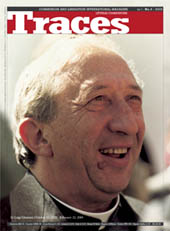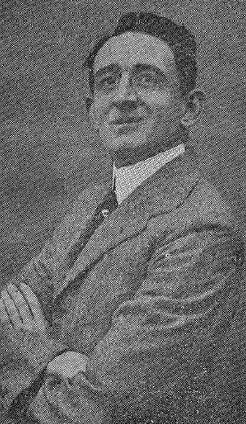Christian philosophy includes all philosophy carried out by Christians, or in relation to the religion of Christianity. Christian philosophy emerged with the aim of reconciling science and faith, starting from natural rational explanations with the help of Christian revelation. Several thinkers such as Origen of Alexandria and Augustine believed that there was a harmonious relationship between science and faith, others such as Tertullian claimed that there was contradiction and others tried to differentiate them.

Christian mysticism is the tradition of mystical practices and mystical theology within Christianity which "concerns the preparation [of the person] for, the consciousness of, and the effect of [...] a direct and transformative presence of God" or Divine love. Until the sixth century the practice of what is now called mysticism was referred to by the term contemplatio, c.q. theoria, from contemplatio, "looking at", "gazing at", "being aware of" God or the Divine. Christianity took up the use of both the Greek (theoria) and Latin terminology to describe various forms of prayer and the process of coming to know God.

Luigi Giovanni Giussani was an Italian Catholic priest, theologian, educator, public intellectual, and founder of the international Catholic movement Comunione e Liberazione. His beatification process was opened in 2012.

The Catholic Church holds no official position on the theory of creation or evolution, leaving the specifics of either theistic evolution or literal creationism to the individual within certain parameters established by the Church. According to the Catechism of the Catholic Church, any believer may accept either literal or special creation within the period of an actual six-day, twenty-four-hour period, or they may accept the belief that the earth evolved over time under the guidance of God. Catholicism holds that God initiated and continued the process of his creation, that Adam and Eve were real people, and that all humans, whether specially created or evolved, have and have always had specially created souls for each individual.
Christian Order is a British-based monthly magazine for Traditionalist Catholics which was described by John Beaumont of Fidelity magazine in 1996 as "most influential of the conservative Catholic journals in the United Kingdom".

Catholic Mariology is Mariology in Catholic theology. According to the Immaculate Conception taught by the Catholic Church, she was conceived and born without sin, hence Mary is seen as having a singular dignity above the saints, receiving a higher level of veneration than all angelic spirits and blessed souls in heaven. Catholic Mariology thus studies not only her life but also the veneration of her in daily life, prayer, hymns, art, music, and architecture in modern and ancient Christianity throughout the ages.

John L. Allen Jr. is an American journalist and author who serves as editor of the Catholic news website Crux, formerly hosted by The Boston Globe and now independently funded.
Co-Redemptrix is a title used by some Catholics for the Blessed Virgin Mary, and refers to Mary's role in the redemption of all peoples.
Anthony M. Esolen is a writer, social commentator, translator of classical poetry, and Distinguished Professor of Humanities at [Thales College]. He taught at Furman University, Providence College, Thomas More College of Liberal Arts and Magdalen College of the Liberal Arts. He was invited to join the faculty at Thales College as Distinguished Professor of Humanities in 2023.
Sensus fidei, also called sensus fidelium is, according to the Catechism of the Catholic Church, "the supernatural appreciation of faith on the part of the whole people, when, from the bishops to the last of the faithful, they manifest a universal consent in matters of faith and morals." Quoting the document Lumen gentium of the Second Vatican Council, the Catechism adds: "By this appreciation of the faith, aroused and sustained by the Spirit of truth, the People of God, guided by the sacred teaching authority,... receives... the faith, once for all delivered to the saints. ...The People unfailingly adheres to this faith, penetrates it more deeply with right judgment, and applies it more fully in daily life." The foundation of this can be found in Jesus' saying in Matthew 16:18 that "the gates of Hell will not prevail against it," where "it" refers to the "Church", that is, the Lord's people that carries forward the living tradition of essential beliefs throughout history, with the Bishops overseeing that this tradition does not pursue the way of error.

Mediatrix of all graces is a title that some in the Catholic Church give to the Blessed Virgin Mary; as the Mother of God, it includes the understanding that she mediates the Divine Grace. In addition to Mediatrix, other titles are given to her in the Church: Advocate, Helper, Benefactress. In a papal encyclical of 8 September 1894, Pope Leo XIII said: "The recourse we have to Mary in prayer follows upon the office she continuously fills by the side of the throne of God as Mediatrix of Divine grace."

A dogma of the Catholic Church is defined as "a truth revealed by God, which the magisterium of the Church declared as binding". The Catechism of the Catholic Church states:
The Church's Magisterium asserts that it exercises the authority it holds from Christ to the fullest extent when it defines dogmas, that is, when it proposes, in a form obliging Catholics to an irrevocable adherence of faith, truths contained in divine Revelation or also when it proposes, in a definitive way, truths having a necessary connection with these.

Charles Fulton Oursler Sr. was an American journalist, playwright, editor and writer. Writing as Anthony Abbot, he was an author of mysteries and detective fiction. His son was the journalist and author Will Oursler (1913–1985).

"Is God Dead?" was an April 8, 1966, cover story for the news magazine Time. A previous article, from October 1965, had investigated a trend among 1960s theologians to write God out of the field of theology. The 1966 article looked in greater depth at the problems facing modern theologians, in making God relevant to an increasingly secular society. Modern science seemed to have had eliminated the need for religion to explain the natural world, and God took up less and less space in people's daily lives. The ideas of various scholars were brought in, including the application of contemporary philosophy to the field of theology, and a more personal, individual approach to religion.

Illtyd Trethowan, born Kenneth Trethowan, was an English Benedictine monk, Roman Catholic priest, philosopher, theologian, and author.

A Secular Age is a book written by the philosopher Charles Taylor which was published in 2007 by Harvard University Press on the basis of Taylor's earlier Gifford Lectures. The noted sociologist Robert Bellah has referred to A Secular Age as "one of the most important books to be written in my lifetime."

Paula Huston is an American novelist, short story writer, essayist, and creative nonfiction writer.
The Catholic theology of Scripture has developed much since the Second Vatican Council of Catholic Bishops. This article explains the theology of scripture that has come to dominate in the Catholic Church today. It focuses on the Church's response to various areas of study into the original meaning of texts.

Stratford Caldecott was a Catholic author, editor, publisher, and blogger. His work spanned subjects as diverse as literature, education, theology, apologetics, economics, environmental stewardship, sacred geometry, art, and culture. His books include Secret Fire, Radiance of Being, Beauty for Truth's Sake, All Things Made New, and Not as the World Gives. He was a founding editor of the online journal Humanum and a contributor for several online and print journals. He was inspired by the Catholic author J. R. R. Tolkien and became known as a Tolkien scholar.
A number of Christian writers have examined the concept of pandeism, and these have generally found it to be inconsistent with core principles of Christianity. The Roman Catholic Church, for example, condemned the Periphyseon of John Scotus Eriugena, later identified by physicist and philosopher Max Bernhard Weinstein as presenting a pandeistic theology, as appearing to obscure the separation of God and creation. The Church similarly condemned elements of the thought of Giordano Bruno which Weinstein and others determined to be pandeistic.













